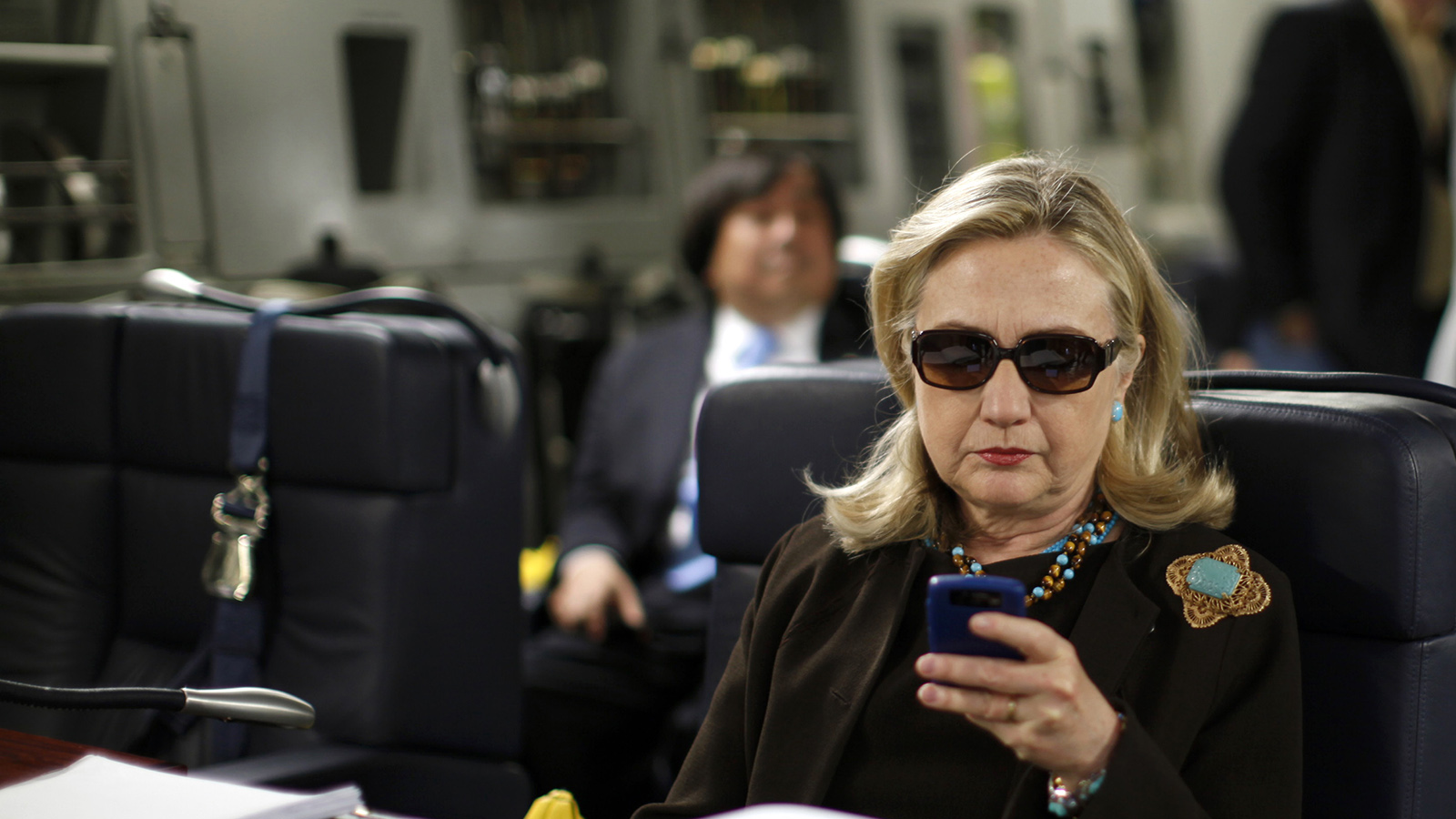
WikiLeaks released yet another batch of hacked emails from inside Hillary Clinton’s campaign Wednesday, and with them came another round of embarrassing headlines and new glimpses of internal anxiety over the candidate’s weaknesses.
Republican Donald Trump and his allies seized on the emails, which reveal comments by an aide about Catholics, a line from a paid speech in which Clinton might be seen as playing down the threat of terrorism and an internal dispute over potential conflicts of interest posed by the Clinton Foundation.
The drip-drip-drip of damaging attention is likely to continue. WikiLeaks, the anti-secrecy organization, began releasing new messages last Friday from the personal email account of Clinton’s campaign chairman, John Podesta, and has promised to issue tens of thousands more.
The correspondence reveals a campaign that has struggled all year to improve a flawed candidate. As far back as March, aides were keenly aware that she was resistant to the media, perhaps out of touch with regular Americans and unable to convey a clear message to voters.
A month before Clinton launched her campaign, her aides worked to corral her well-known love for granular policy details into a message that would both capture her agenda and present a forward-looking, aspirational vision for her presidency.
Nearly a year later, a similar struggle cropped up as they attempted to revise her core campaign message.
“Do we have any sense from her what she believes or wants her core message to be?” asked Clinton adviser Joel Benenson.
Benenson contrasted the simplicity of Sen. Bernie Sanders’s anti-Wall Street message with Clinton’s multitiered campaign slogans.
Seven months later and on the cusp of Election Day, the concerns laid out in these emails and others largely remain. Clinton has proven to be a lackluster candidate who has struggled to win over the liberals who gravitated to Sanders during the pr
imary, and who remains ahead in large part due to Donald Trump’s historic weaknesses.
“Right now I am petrified that Hillary is almost totally dependent on Republicans nominating [Donald] Trump,” Brent Budowsky, a political columnist and former political adviser, wrote in a March 2016 email to Podesta and Roy Spence, an ad maker for the campaign. “She has huge endemic political weaknesses that she would be wise to rectify.
“Even a clown like Ted Cruz would be an even money bet to beat and this scares the hell of out me,” Budowsky added.
Indeed at least one aide, Benenson, believed that Sen. Marco Rubio (R-Fla.) posed the greatest threat to Clinton if he were to become the Republican nominee.
Hovering over the trickle of embarrassing emails are suspicions both within the Clinton campaign and in intelligence circles that Russia is behind the hack. The FBI is investigating the cyber incident as part of a broader inquiry into Russian hacking of political organizations such as the Democratic National Committee, law enforcement officials said. Clinton and her allies have linked the hacking to an attempt by the Russians to influence an American election.
“By dribbling these out every day, WikiLeaks is proving they are nothing but a propaganda arm of the Kremlin with a political agenda doing Putin’s dirty work to help elect Donald Trump,” said Clinton spokesman Glen Caplin. “The FBI is now investigating this crime. The unanswered questions are why Donald Trump strangely won’t condemn it and whether any of his associates are involved.”
Regardless, the emails are likely to be a source of headaches for Clinton from now until Election Day. The Clinton campaign has declined to confirm the authenticity of the emails, nor has it denied it.
At a Wednesday afternoon rally in Lakeland, Fla., Trump called the WikiLeaks revelations “big stuff” and repeatedly slammed his Democratic rival over them.
“The Hillary Clinton documents released by WikiLeaks make more clear than ever just how much is at stake on Nov. 8. She would be the most dishonest and the most corrupt person ever elected to high office,” Trump told the crowd.



Expositores: Oscar Vidarte (PUCP) Fernando González Vigil (Universidad del Pacífico) Inscripciones aquí. Leer más
Una retrospectiva para entender los próximos cuatro años. Leer más
En la conferencia se hará una presentación de los temas más relevantes del proceso de negociación se llevó a cabo desde el 2012, así como del acuerdo de paz firmado entre el Gobierno colombiano y la guerrilla de las FARC a finales del 2016. Se analizarán los desafíos y las... Leer más
El Observatorio de las Relaciones Peruano-Norteamericanas (ORPN) de la Universidad del Pacífico es un programa encargado de analizar y difundir información relevante sobre la situación política, económica y social de Estados Unidos y analizar, desde una perspectiva multidisciplinaria, su efecto en las relaciones bilaterales con el Perú.
© 2026 Universidad del Pacífico - Departamento Académico de Humanidades. Todos los derechos reservados.

